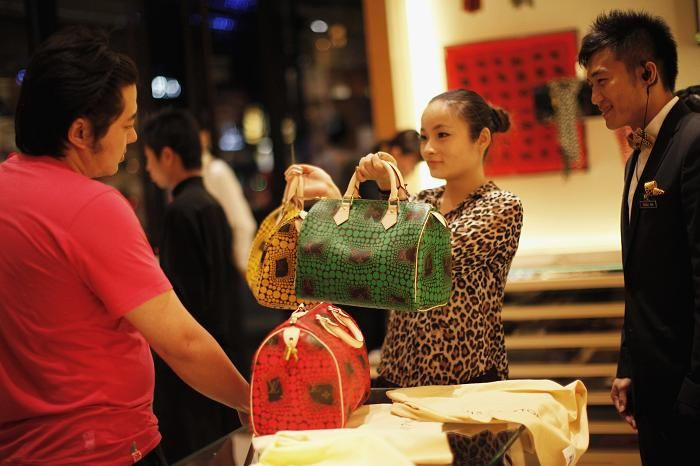European Companies Target Growing Population Of Affluent Consumers In Asia While Sourcing Labor From Asia's Poor Workers

The Asian middle class is growing rapidly, and global businesses are busy pushing higher-end products to those segments of the population that are growing more affluent.
The European luxury goods sector is forecast to grow between 6 percent and 7 percent over the next five years, and that growth largely depends on emerging markets, according to a recent report from research firm Sanford C. Bernstein. The firm's findings indicate that, for Chinese consumers in particular, many shop while traveling to Europe to avoid huge markups on luxury items at home, and acquire more than 60 percent of their luxury goods abroad.
That pattern has prompted some luxury producers to raise their prices in Europe in hopes of bridging the price gap. French luxury goods conglomerate Moët Hennessy Louis Vuitton is taking advantage of consumers from emerging markets by setting up pop-up Louis Vuitton retail stores in trendy fashion districts of Beijing, Hong Kong and Seoul.
"Chinese children born in 2009 are likely to consume approximately 38 times more than their grandparents during their lives," says Nicolas Smolarski, consultant with European business strategy firm Frost & Sullivan.
European companies face particular challenges that Frost & Sullivan has identified as increasing manufacturing costs, a surge in mergers and acquisitions from Asian companies, a complex and biased road to market, and a significant catching up of innovation capabilities in Asia. But they still tell their clients that the potential for EU companies in Asia remains huge.
"Manufacturing in Asia can be risky and is expected to become more expensive, however, there are alternatives that can help lower costs and reduce risks," says Smolarski.
Chinese investment in European companies reached $12 billion in 2011, a 24 percent jump over 2010. Yet Europeans cut investments in China by 42.5 percent between 2010 and 2012 because of increasing labor costs there.
Frost & Sullivan now encourages its European clients to tap into the burgeoning cheap labor forces of Indonesia, Malaysia, the Philippines, Singapore, Thailand, Brunei, Myanmar (Burma), Cambodia, Laos and Vietnam -- countries that make up the Association of Southeast Asian Nations economic network.
© Copyright IBTimes 2024. All rights reserved.





















